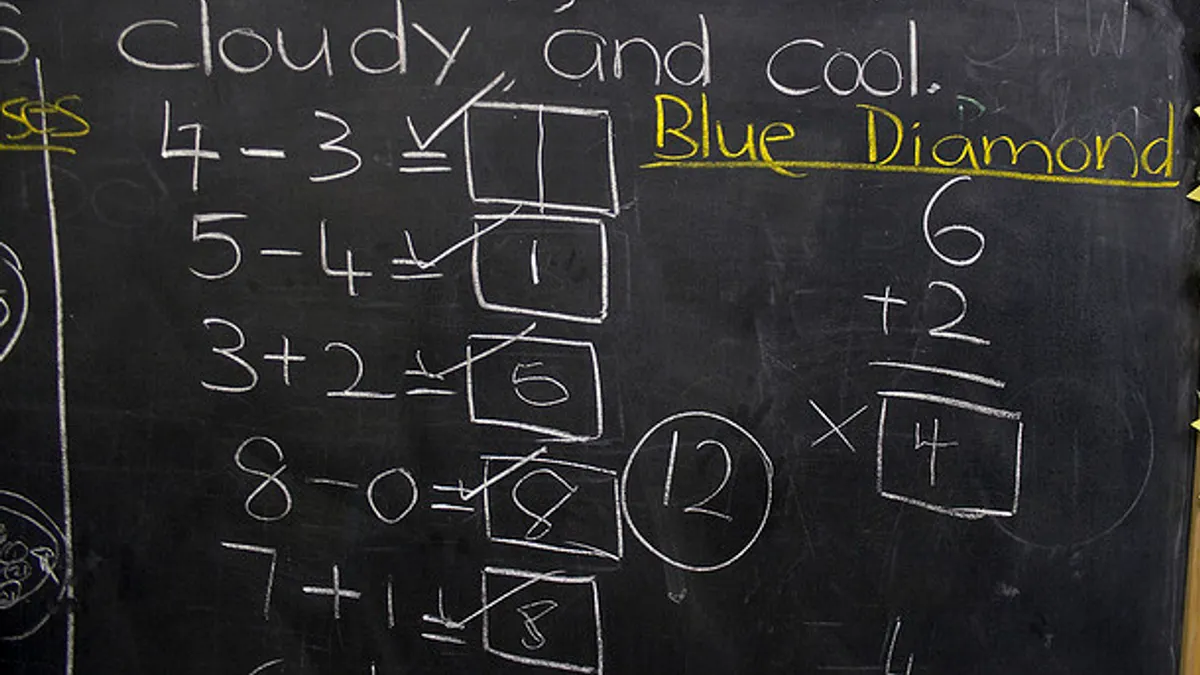Dive Brief:
- By using elements of gaming, a new adaptive technology product produced by Front Row has shown, in a study financed by the company, that students using it performed better in math.
- WestEd — a nonpartisan, nonprofit research agency — was contracted to perform the research on more than 450 students, which looked at the Northwest Evaluation Association’s’ Measure of Academic Progress (MAP) test scores in mathematics for 2014-15.
- WestEd found that students who used Front Row scored 9.86% higher than those who didn't.
Dive Insight:
According to a press release from Front Row, its math product is used in 25% of U.S. schools. Another product, Front Row ELA, focuses on reading and writing components. Other math-focused gamified learning platforms include Amplify Learning's "Twelve A Dozen," which is Algebra-specific, and Stanford School of Education's "Motion Math."
The use of game mechanics and design to facilitate learning has been adopted, at least in part, due to perceived shorter attention spans among kids as a result of high Internet and video game usage. Yet encouraging and catering to the bad habits of students may not be the best idea. Districts and schools should proceed with caution and make sure gamified content is used in conjunction with learning tools and methods that reward patience, focus, and prolonged attention to subject matter.







 Dive Awards
Dive Awards







